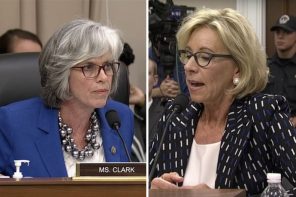The United Methodist Church has decided to lift some sanctions it had imposed on Claremont School of Theology, after receiving reassurances that the LA-area seminary was not in fact going to create a combined school for Abrahamic clergy (i.e., Christians, Jews and Muslims):
In a terse statement Friday, the United Methodist University Senate announced that it had rescinded a public warning and restored funding to the school, which will remain affiliated with the church. The senate oversees all Methodist-affiliated seminaries.
Claremont President Jerry Campbell said the change of heart came after the school managed to allay fears “that we were turning a United Methodist-related seminary into something very different.”
The story points to something of the agony of seminaries these days. They can’t sustain the institutions without the support of the sponsoring denominations. But at the same time, they can’t exist with only that support, which means that they have to find other sources of revenue. It’s common for seminaries these days to be open to student of other Christian denominations, at the very least, and to students who aren’t necessarily seeking ordination. That openness is genuine, but it doesn’t hurt that it keeps the green rolling in.
That’s still not enough to keep some schools going, though, especially as enrollments drop nationwide. It’s a tough market: open pulpits in desirable locations are hard to come by, particularly in the midst of a recession. (If you’d like to be a pastor in rural northern Wisconsin, however, there are plenty of opportunities available.)
And while education costs rise, clergy pay isn’t undergoing a similar increase, in part because there are more smaller congregations who can’t afford to keep a full-time minister. That leads many clergy to become bi-vocational and/or skip seminary, or find alternative routes to ordination, such as correspondence courses or lay academies.
All in all, it’s a tough market. As the LA Times points out, it’s led to some consolidation and some very creative thinking in order to keep the doors open.




